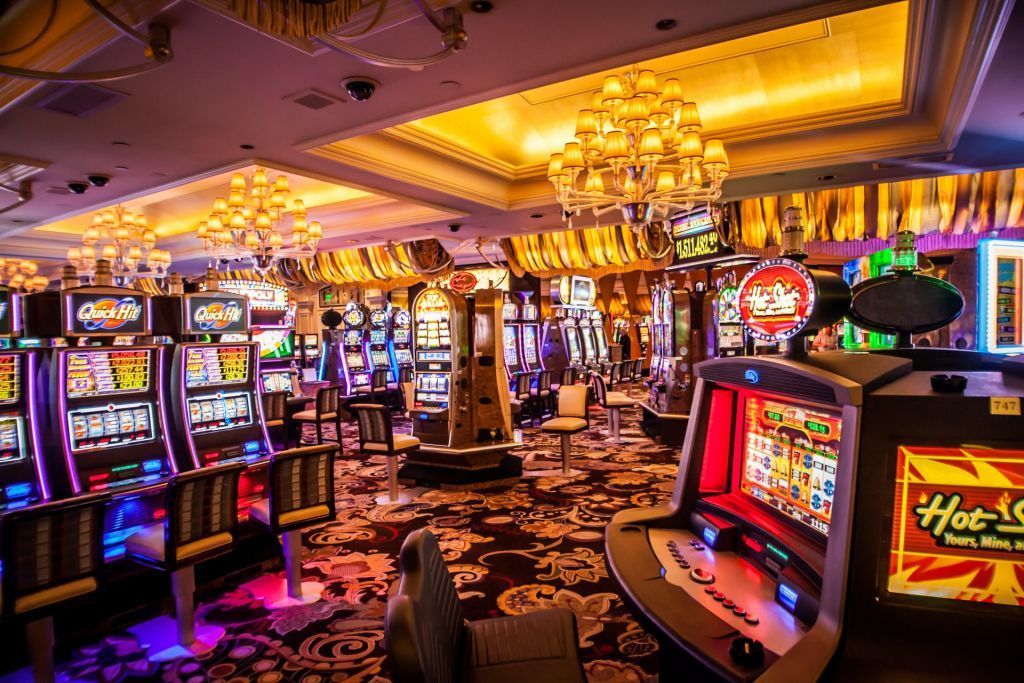A Societal Impact of Casino Games Across the Globe
admin
- 0

Casino entertainment have long been a captivating form of entertainment, drawing numerous of players from varied cultures around the globe. From the opulent casinos of Las Vegas to the busy gambling halls of Macau, these games serve as a link that connects people across a variety of backgrounds. The allure of fortune, tactics, and uncertainty entices not only those looking to strike it rich but also those looking for a sense of community.
The significance of casino games extends significantly past the gaming floor. They often reflect the values and principles of the communities in which they prosper. Games such as Texas hold ’em, 21, and roulette have embedded themselves into the fabric of popular culture, influencing multiple fields from cinema to fashion. As we explore this intriguing intersection of chance and life, we can better understand how these games shape and are shaped by the world around us.
Historical Development of Gaming Games
The beginnings of casino activities can be followed back to ancient civilizations, where gambling in different forms was extensively engaged in. In China, around 2300 BC, a type of lottery known as Keno was common, while in historic the Roman Empire, soldiers would regularly wager on the outcomes of their games. The idea of using randomness for fun and gain developed over the centuries, leading to the creation of more formal games. By the final Middle Ages, betting houses began to emerge in Europe, particularly in the Italian peninsula, which presented early incarnations of well-liked games still practiced today.
As betting expanded recognition in European regions, the 17th and 18th centuries saw the emergence of casinos as specialized locations for gambling. The initial official gambling house, the Ridotto, was set up in the Venetian city in the year 1638, providing games like Baccarat and Faro. This time marked a significant pivoting point, as gaming venues commenced to attract not just the elite but also the burgeoning middle-tier society. The sophistication of games increased, leading to the introduction of new regulations and variations that improved the play experience.
In the 19th century, the industrial age and changes in social norms also transformed the landscape of gambling games. The introduction of the game of roulette and modern one-armed bandits attracted a larger audience, and gambling establishments became seen as legitimate recreation. This time witnessed the worldwide proliferation of gaming, as gambling houses expanded from European nations to the New World, culminating in the development of the legendary Las Vegas Strip in the twentieth century. The development of casino activities has progressed into the modern era, integrating technology and digital sites, rendering them available to a worldwide market.
### Cultural Significance across Various Communities
Gambling games have deep-rooted cultural and social importance within numerous cultures throughout the planet. 8kbet For instance, in Las Vegas, the very essence of the city is woven around casinos, where gaming is not just a recreational activity but a key aspect of leisure and community life. The dazzling lights and dynamic atmosphere attract countless individuals, showcasing how games of chance can impact local financial landscapes and local cultures. This environment transforms the notion of relaxation into an immersive event that shapes fashion, sound, and even cinema.
In contrast, some communities approach gambling with greater care, seeing it through the lens of ethical beliefs and tradition. A case in point, in various Eastern societies, games like Mahjongg and Pai Gow are rich with history and have significant social meanings. These games are often played during get-togethers and celebrations, fostering social ties and solidifying familial ties. The act of participating in these games goes past mere entertainment, reflecting principles such as deference to seniors and the significance of collective enjoyment.
At the same time, in European countries such as the principality of Monaco and Rome, gambling activities serve as symbols of wealth and elegance. The stylish atmosphere of these establishments attracts both visitors and locals, reinforcing a sense of status and elitism. The art of Texas Hold’em and the strategic elements of games like the game of baccarat are esteemed, influencing community relationships and establishing an appeal that captivates a varied audience. This highlights how gambling can simultaneously mirror and mold cultural attitudes towards hazard, reward, and relationship building.
Economic Impact and Tourism
Gambling activities play a important role in the economic landscape of many regions, particularly those that rely heavily on visitor traffic. The revenue generated from gambling establishments fuels local financial systems, creating jobs not only within the casinos but also but also in connected industries such as hotel management, restaurant services, and recreation. This surge of tourists, drawn by the attraction of gambling and the overall gaming environment, stimulates expenditure across multiple local enterprises, contributing to the economic health of the area.
The existence of casinos often leads to the development of infrastructure, including lodging, public transit, and leisure amenities. These improvements are essential in improving the overall tourist experience, making destinations more attractive to visitors. Additionally, many casinos invest in local communities through support of activities and philanthropic activities, further integrating themselves into the social fabric of the region. Such investment not only supports economic growth but also fosters a positive reputation of the gambling sector.
Furthermore, the global popularity of casino games drives competitive tourism, with regions vying to attract players from around the world. Iconic locations like Las Vegas and Macau have become identifiable with casino culture, drawing millions each year. This advantage encourages innovation and diversification within the gambling sector, influencing trends in leisure and hospitality that extend beyond their borders. The consequences of this tourism extend wide, impacting local financial health and cultural exchanges on a worldwide scale.